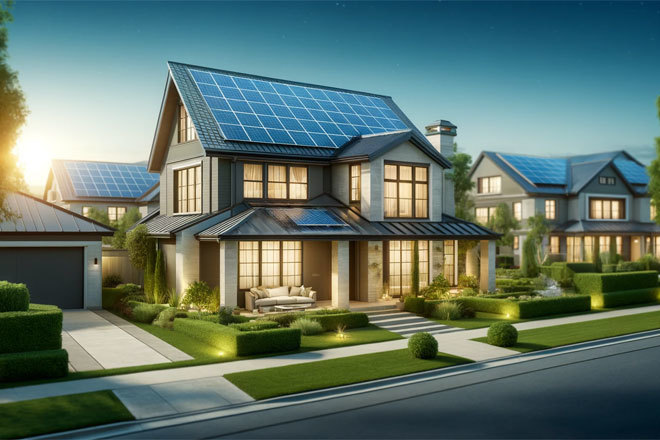
The Impact of Solar Energy on Home Valuation: What You Need to Know
In today’s environmentally conscious market, homeowners and potential buyers are increasingly considering renewable energy sources, with solar energy at the forefront. Installing solar panels on your home not only contributes to a sustainable planet but can also significantly increase your property’s value. Here’s what you need to know about how solar energy can impact home valuation.
1. Increased Property Value
Studies have consistently shown that homes with solar energy systems sell for more than homes without them. According to research, each kilowatt (kW) of solar installed can increase a home's value by over £5,900 on average. This value increment is in addition to the savings on energy bills that solar panels provide, making them an appealing feature for potential buyers looking for eco-friendly and cost-effective homes.
2. Attractiveness to Homebuyers
As the demand for sustainable living increases, homes with solar panels have become particularly attractive to buyers. Solar installations are viewed as upgrades, much like a renovated kitchen or a finished basement. This appeal can significantly reduce the time your home spends on the market, a crucial factor in real estate transactions.
3. Location-Specific Benefits
The increase in property value varies depending on several factors, including the location of the home. In regions with high electricity rates and strong solar incentive programs, the added value from solar installations can be even higher. For instance, markets like California and New Jersey, which promote solar energy through rebates and incentives, see higher increases in property values.
4. Size and Quality of the Installation
The additional value conferred by solar panels also depends on the specifics of the installation. Larger systems that generate more power are typically more valuable. However, potential homebuyers also consider the age of the system and the remaining warranty. A newer system with a long, transferable warranty is more beneficial than an older system nearing the end of its warranty period.
5. Financing Options
It’s important to note that how you finance your solar panels can affect their impact on your home’s value. Owned solar systems—purchased outright or through financed loans—add more value compared to leased panels or power purchase agreements (PPAs) because the homeowner owns the equipment. Systems under leases or PPAs can sometimes complicate the home selling process unless the buyer agrees to take over the leasing agreement.
6. Energy Independence
Solar panels contribute to a home’s perceived value by providing energy independence. Homes with solar capability can generate their own power, which is a significant advantage during power outages or increasing energy costs. This capability can make a property particularly appealing to buyers in areas prone to blackouts or high utility prices.
Conclusion
The integration of solar panels is a smart move not just for energy savings but also for increasing your home’s market value. As solar technology becomes more mainstream and accessible, it is likely that its influence on home valuation will continue to grow. Homeowners considering solar installations should think of them as an investment in the future—both in terms of financial returns and environmental impact.
